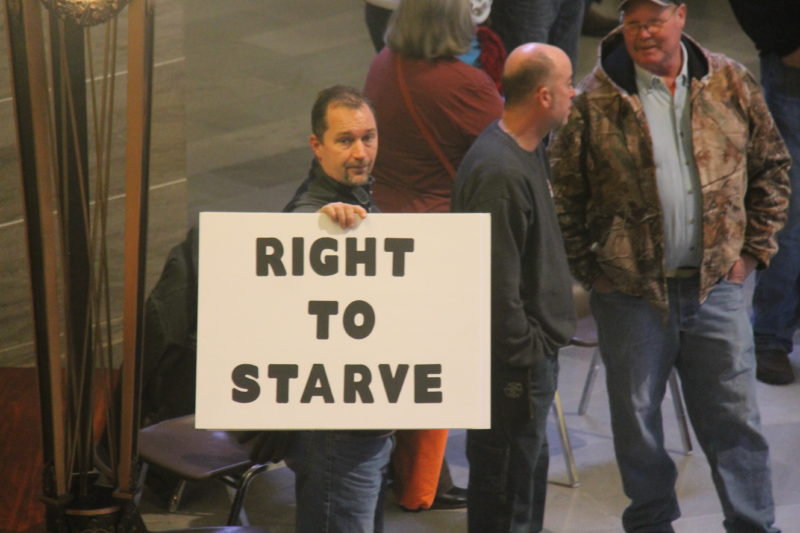JEFFERSON CITY, Mo. – Right-to-work opponents can celebrate another victory in their fight to get their referendum on the ballot.
The issue concerns the passage of right-to-work legislation this past session, as the new law bans the collection of union dues. Republicans and Gov. Eric Greitens promised to bring right-to-work to the Show-Me State and successfully passed the bill into law, saying it will bring more jobs to Missouri.
A number of unions and opposing groups say the new law is anti-union, and to fight back, they turned to the voter referendum process, which, if they can secure 90,000 votes, would put the law before voters on the ballot.
But right-to-work supporters have challenged the petition in the courts, saying it was written in a way to confuse voters. Cole County Circuit Court Judge Daniel Green sided with them, saying the referendum in question was misleading.
The Missouri Court of Appeals Western District on Friday reversed the decision by Judge Green, which had ordered the summary statement for the right-to-work referendum to be rewritten.
The Court said that, although the summary statement could have been better, the issues do not meet the level of qualifying as insufficient or unfair, and as such, ordered the original language to be reinstated.
“The circuit court may be correct that the summary statement was not drafted `in a grammatically-competent manner,’ and these grammatical errors may indeed be `embarrassing.’ But grammatical competence and the avoidance of embarrassment are not the tests for gauging the summary’s legal sufficiency,” the ruling said.
Here is the official ballot title as certified by the Secretary of State on March 28, 2017.
Do the people of the state of Missouri want to adopt Senate Bill 19 (“Right-to-Work”) as passed by the general assembly in 2017, which prohibits as a condition of employment the forced membership in a labor organization (union) or forced payments of dues in full or pro-rata (fair-share); make any activity which violates employees’ rights illegal and ineffective; allow legal remedies for anyone injured as a result of another person violating or threatening to violate employees’ rights; and which shall not apply to union agreements entered into before the effective date of Senate Bill 19?
State and local government entities expect no costs or savings.
Secretary of State Jay Ashcroft earlier in the year defended the petition, saying the lawsuit’s backers were “playing politics with the right of the people to exercise their constitutional right.”
The Court’s decision on Friday affirmed Ashcroft’s original ballot summary language as “fair and sufficient,” as well as “familiar and easily understood, but also unbiased.”
“Missourians expect to understand exactly what they are voting for or against,” Ashcroft said. “Ballot language should be clear and easy to understand – that yes means yes and no means no.”
The Court agreed, saying that the “Secretary of State framed the referendum question consistently with Missouri constitutional and statutory provisions” and is “unbiased, accurate, and easily intelligible.”
Opponents of the petition already plan to appeal the decision with the Missouri Supreme Court.
Benjamin Peters was a reporter for The Missouri Times and Missouri Times Magazine and also produced the #MoLeg Podcast. He joined The Missouri Times in 2016 after working as a sports editor and TV news producer in mid-Missouri. Benjamin is a graduate of Missouri State University in Springfield.




















